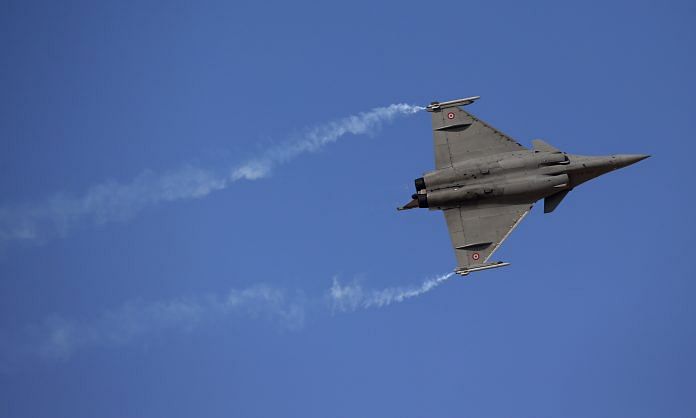New Delhi: The Editors Guild of India on Thursday condemned the Attorney General’s comments before the Supreme Court pertaining to “stolen” documents on the Rafale deal, and said the media would not be intimidated.
“Any attempt to use the Official Secrets Act against the media is as reprehensible as asking the journalists to disclose their sources,” the guild said in a statement after the government threatened action.
The Hindu had last month published several articles on the Rafale deal, including a report that PMO-led parallel negotiations had undermined the Indian Negotiating Team and defence ministry’s talks with the French government.
N. Ram, the publication group’s chairman, said they did not steal any documents and reiterated their commitment to protecting their sources.
“We did not steal the documents from the Ministry of Defence, we got them from confidential sources and no force on earth can make me or us reveal the source of the documents, because we have given our word,” he said in a statement in The Hindu.
Attorney General K.K. Venugopal on Wednesday sought dismissal of a petition for a review of the apex court’s earlier judgment, giving the government a clean chit, on the grounds that the fresh petition had relied on documents that were “stolen” from the defence ministry. The government also said investigations were ongoing to ascertain if it was a crime and violative of the Official Secrets Act.
Venugopal later clarified that the no action would not be taken against journalists or lawyers who used these documents.
The Editors Guild said such threats will “intimidate the media in general and curb its freedom” to report and comment on the Rafale deal, and called on the government to not undermine the media’s freedom and independence.
Also read: Modi poster boy for Pakistan: Rahul Gandhi throws back jibe, calls for Rafale probe




Government and the Supreme Court of India should look into the aspects whether stolen documents have reached in the hands of enemies of India through so called vigilant press. They may be after technological secretes . At time of future war Indian Armed forces may be at disadvantage. No leniency should not be shown in the name freedom of expression. Alleged corruption or procedural lapses may be just camouflage for some sinister designs of anti -India elements.
The question doesn’t relate to action against journalists or petitioners for publishing/using contents of stolen secret defence documents. The issue is whether such stolen documents are admissible in court as evidence. There are four principles which are based on which illegally obtained pieces of evidence should not be accepted. The four principles are reliability principle, disciplinary principle, protective principle and judicial integrity principle. According to Reliability Principle, the evidence is admitted based reliability but if evidence obtained through torture, violence or under pressure might not be reliable. “Disciplinary Principle” states that Judiciary should discourage the improper manners used for obtaining evidence. This will deter the prosecution or defendant from resorting to such manners for getting pieces of evidence. “Protective principle” follows the idea that exclusion of illegally obtained evidence is one of the remedies to the person against whom the evidence was obtained with the breach of individual’s right. “Judiciary Integrity Principle” is based on the idea that to maintain respect for the administration of justice, the court should be careful while admitting illegally obtained evidence as by allowing such shreds of evidence; courts are promoting the improper methods of procuring evidence. In the instant case, the published material based on stolen documents contains data and numbers that were not made available even to the Parliament and were submitted to the Supreme Court in a sealed cover. In my opinion, admissibility of such stolen documents has to be viewed with circumspection and caution
For the apex court, it should not matter how the petitioners came into possession of these documents. What is relevant for it is to treat these as part of a jigsaw puzzle. How these official documents – whose authenhas now been established – meld with those it has perused earlier, to satisfy itself on both the decision making process and aspect of price. Whether these documents deepen its understanding of the issues under examination, whether there was sufficient justification for these documents not to have been submitted to it earlier. 2. If this matter is taken up under the OSA, ANI would be directly in the line of fire, having tweeted the remaining part of one of the important documents within hours of The Hindu’s story. Friendly channels that are routinely “ accessing “ top secret documents and material would also be liable for prosecution.